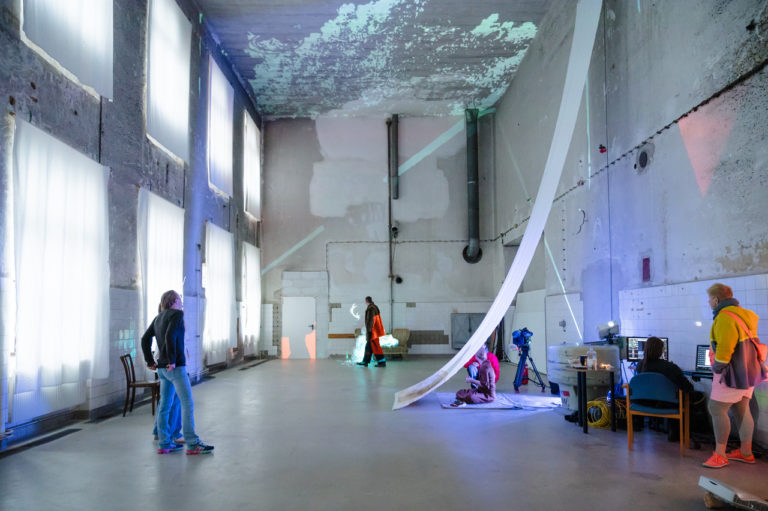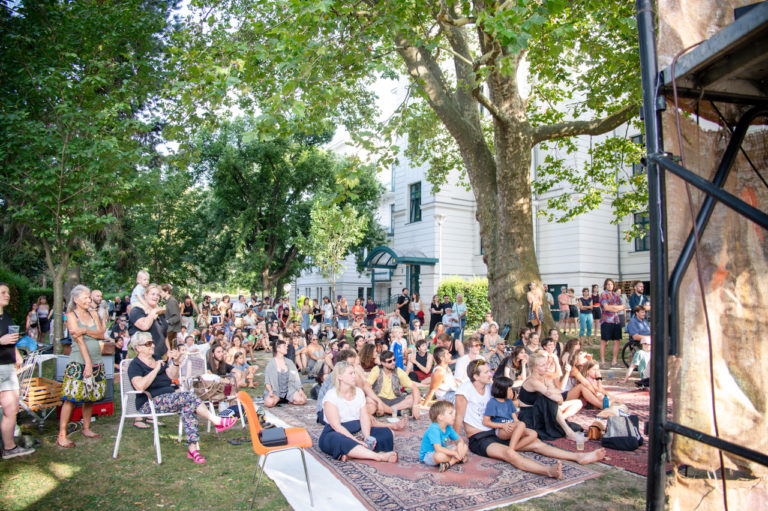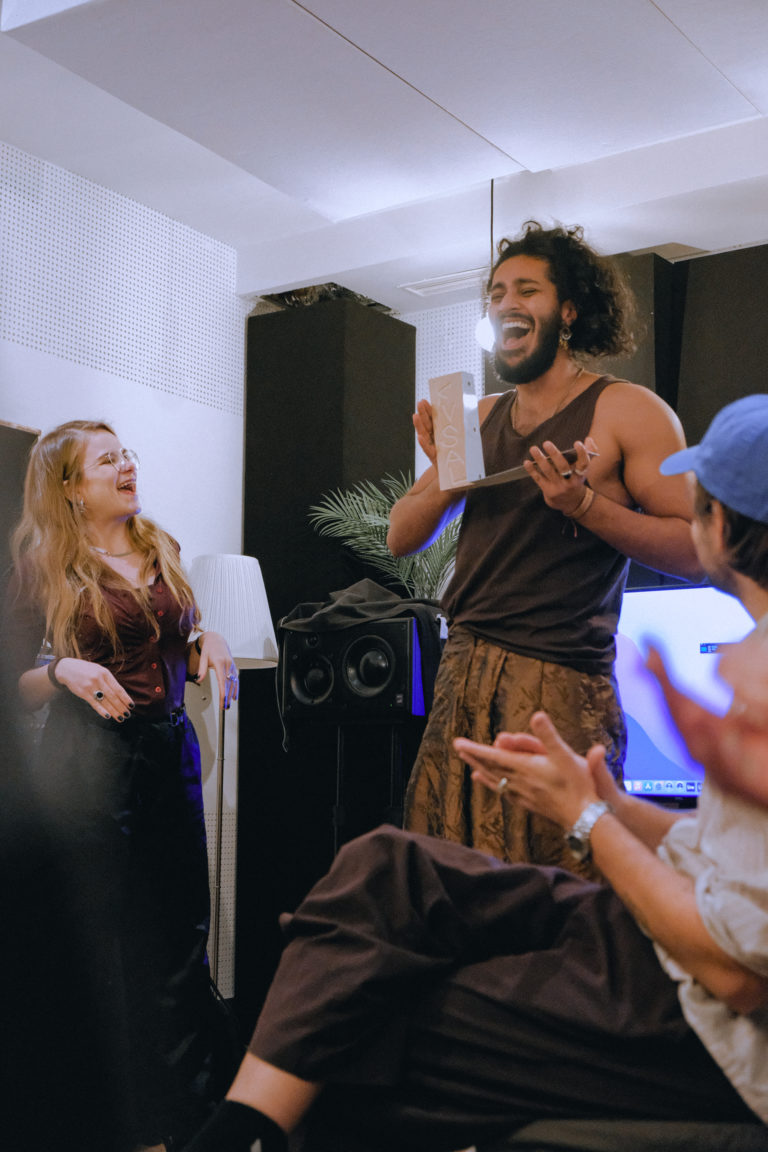Author: Manon Moulin
Austria stands at a pivotal moment as the far-right Freedom Party (FPÖ) makes a powerful comeback in the latest general elections, raising concerns about the country’s political future and the fate of its independent cultural sector. With the FPÖ’s platform focused on anti-migrant rhetoric and nationalism, cultural organisations are alarmed by the threat to diversity and free expression. In response, Austria's independent artists and cultural workers are rallying to defend the open, inclusive spaces they’ve fought hard to create, refusing to let far-right ideology undermine their vision of a multicultural society. To get the pulse of the independent cultural sector, we interviewed Frederik Marroquín, from independent centre for arts and culture Semmelweisklinik, and Smaranda Krings from QMA, an organisation working for giving free access to all to the Vienna art scene, as well as setting a proactive networking between newcomers and established members of Vienna's art and culture scene.

The old washing kitchen in Semmelweisklinik – © Johanna Lea Lassnig
The far-right Freedom Party of Austria (FPÖ) has made a comeback in the latest parliamentary elections in Austria, which took place on September 29th, 2024. This victory comes after the FPÖ’s already chaotic political experience in the 2017-2019 coalition government between the right-wing conservatives of the Austrian People’s Party (ÖVP) and the FPÖ, which ended with the resignation of its leader and vice chancellor, Heinz-Christian Strache, after a scandal involving him in corrupt practices with Russian oligarchs for positive news coverage in return for government contracts. The FPÖ’s position is now extremely threatening to Austria’s independent cultural sector, as it has been–and still is–in Italy, Sweden, Hungary or Slovakia.
Unprecedented Yet Progressive Victory
The fear that has been building up in the minds of many European voters over the past few years has also materialised in Austria, with a far-right party coming first in the country’s parliamentary elections. In fact, the FPÖ won 29.2% of the vote, while the conservative ÖVP came in second with 26.48%, and the Social Democratic Party of Austria (SPÖ) came in third with 21.05%. These results are unprecedented. Since 1945, the extreme right in Austria has never achieved such high results. “Until the last moment of course we hoped this wouldn’t happen, but it almost seemed inevitable,” says Smaranda Krings from art initiative QMA.
Indeed, this unprecedented situation didn’t just happen. The FPÖ has built a strategy to conquer power that has been laid out for years, from political presence to media occupation to narrative dominance. “These elections are the visible results of a long-standing, deep-rooted problem in Austria. They reflect a lack of coming to terms with the historical crimes of National Socialism and the normalisation of far-right ideology, marked by the shifting positions of other parties in favour of the FPÖ,” adds Frederik Marroquín, visual artist and choreographer, and co-founder of the self-organised art space Semmelweisklinik.
In fact, the country’s media structure has helped the FPÖ and its far-right narrative spread enormously over the years. Austria has a high concentration of ownership and a general media offering that is not diverse at all. The country counts only 12 daily newspapers, mostly owned by wealthy families and the Catholic Church. Even on a regional level the offer doesn’t follow, with some regions counting only one periodical. This situation is the perfect ground to lock people into a unique, closed narrative that the European far right knows so well.
Both this historical and political setting helps to understand the particular context of the Austrian far right, now led by Herbert Kickl, an extremist who wants to get into the chancellery and then be called ‘Volkskanzler’ (like Hitler at the time).

Semmelweisklinik's annual summer festival – © Elisabeth Blum
A Threatening Ideology for Independent Culture
As the FPÖ is a party founded by ex-Nazis, nothing encouraging was to be expected, but their programme, attitude and general presentation is still extremely worrying. They have built the entire campaign around migration issues, and the other parties have bent over and adapted to the far-right’s themes. Herbert Kickl and the FPÖ want to introduce a ‘remigration’ plan in Austria to deport what they consider to be ‘illegitimate’ migrants, and they denounce a ‘forced multiculturalism.’ They reiterate the need to focus on ‘groups of people who are native to Austria,’ in a general programme titled ‘Austria first’ that considers making the country a ‘fortress.’
This policy plan is nothing but racist and reactionary. As always, the first targets of such ideas will be already marginalised communities, be they BIPoC, queer, migrant, or poor people. Any person or group that deviates from their extremist norm will be an outcast. And this is a direct threat to all independent cultural organisations, especially those that focus on marginalised communities, but also on the rights of migrants and exiles. “We see that it created fear in our communities of migrant artists living in Vienna. People have built a life and a career here and are of course afraid,” points out Smaranda Krings. The FPÖ is also a pro-Russian party that wants to stop supporting Ukraine in its fight against Russia’s full-scale invasion. The support of Ukrainian artists in exile could then also be threatened by this political moment.
“It’s very straightforward: the FPÖ does not support free art or culture,” says Frederik Marroquín. At risk of losing funding, access to spaces or even legal and social recognition, independent cultural organisations could suffer greatly if the far right makes it to the chancellery.
However, this possibility of seeing Herbert Kickl as the next chancellor of Austria isn’t as certain as it might seem. In fact, the FPÖ needs a coalition to get to Ballhausplatz 2 (the official residence of the chancellor), and all parties have so far rejected the possibility of an alliance with them, especially because the figure of Herbert Kickl is too extremist. But who knows what might happen on the right wing of the political spectrum? The conservative ÖVP has already formed an alliance with the FPÖ in the past, and precedents in Europe prove that alliances with the far right do exist–like in Sweden. This negotiation period puts independent cultural players in an uncertain situation, especially because of the Austrian funding agenda: “All annual applications for funding from the Ministry of Culture are due at the end of September and are discussed from October to December, so ideally organisations find out in December whether they will continue to receive funding for their work in the new year. In theory, there is a transitional budget, so there shouldn’t be any cuts. However, if the government is formed very quickly, changes could be made to the available budget,” explains Smaranda Krings. While some media suggest that the country could be without a government until the winter break, the horizon isn’t quite clear.
Either way, the Austrian independent scene is determined to resist and form alliances in order to survive no matter what.

QMA Stage 2023 – © Maria Belova
Independence Fights Back
In the face of this existential threat and, as Smaranda Krings puts it, “a big part of the population feeling empowered after such elections to voice their racist sentiments much louder than before”, independent cultural players immediately mobilised to express their concerns and values, in particular through a collective petition entitled “Not with the FPÖ! Cultural Diversity Is Not Negotiable.” In this document, cultural workers unite to denounce the threat that the FPÖ poses to Austrian culture and its diversity, and they reaffirm their commitment to a democratic culture in Austria.
This solidarity movement is necessary to maintain the cultural sector and its activities in such a political situation. The independent scene is very often the most proactive actor in this matter, and even in the face of difficulties it finds a solution to continue resisting and existing. Frederik Marroquín confirms and explains: “If there isn’t a political shift to the left, it’s quite possible that we may face closure as a self-managed centre. However, I want to emphasise that while we must recognise the severity of the situation, there are always new ways to continue projects. We’ve built a network that can endure beyond our current physical location.” QMA also hopes that people will mobilise to support migrant organisations by “getting involved and donating to our causes,” and Smaranda Krings continues, “we need to continue holding spaces, creating opportunities, and supporting each other.”
These actions are inspiring to keep hope alive in times of adversity, and many organisations have committed to long-term action by bringing their communities together to strengthen bonds, with community events or advocacy efforts by organisations such as Black Voices, Maiz, D-Arts, Kültür Gemma, or QMA. As Frederik Marroquín beautifully puts it, “We need to move beyond a cycle of outrage and apathy toward a positive shared vision for the future. It may seem absurd on days when the violence—whether directly experienced or through media—is unbearable. It may seem absurd during times of war and climate crisis, where political discourse consistently sidesteps these issues in favor of inhumane positions. However, it is essential to cultivate hope and extend our vision beyond our own lives and the next art project. We must translate this hope into concrete actions, remembering that alongside immediate aid and protests, there is a need for slow, detailed work to transform our society sustainably. We don’t all have to take on the same roles; what matters is that we all contribute and see ourselves as actors capable of making a difference.”
References:
Nicht mit der FPÖ! Kulturelle Vielfalt ist nicht verhandelbar (Not with the FPÖ! Cultural Diversity Is Not Negotiable)
Emma Wallis, Austria: What could the elections mean for migrants and migration policy? – InfoMigrants
Hanna Corsini, Autriche : qu’est-ce que le FPÖ ? Histoire et perspectives du parti d’extrême-droite qui vient de remporter les législatives (Austria: what is the FPÖ? History and prospects of the far-right party that has just won the parliamentary elections) – Le Grand Continent
Eszter Kováts, What Austria’s election teaches us about the far right’s rise and migration fears – Social Europe
Gerald Demmel and Patricia Huber, Tageszeitungen in Österreich: Eigentümer und politische Ausrichtung (Daily newspapers in Austria: ownership and political orientation) – Kontrast
Published on October 22nd, 2024
About the author:
Manon Moulin is the editorial coordinator of all European projects for the non-profit organisation Arty Farty. She specifically works on the European network of independent cultural and media organisations Reset!, as well as the aggregation media We are Europe.